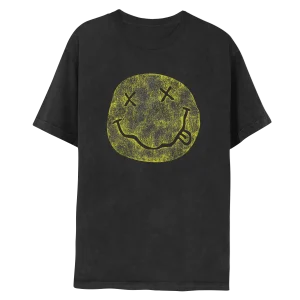People often think preparing for a storm is only important during the summer when rain, wind, and flood water will damage everything. But storms can also occur during the winter, bringing heavy snow and ice. This situation can damage the property and appliances. So, it would help if you took care of the property, especially the indoor comfort heating and cooling system, so the rest of your winter days can be spent in peace.
Indoor Comfort Heating and Cooling Companies Explaining Damage Signs
You might think that you could detect most signs when reading these points. Some red flags can be easily identified, but you must hire a professional maintenance team to detect other issues. The team will inspect the HVAC unit and look for the following damage signs.
A Power Surge Causing Mechanical Damage
The electric supplying companies often turn off the power supply to avoid fluctuations that can damage appliances, including the HVAC unit. But when the power is turned back on, the surge of electricity could damage the gadgets if switched on.
HVAC Unit Experiencing Short-Cycling
As mentioned above, inconsistency in the power supply can internally damage the system. The HVAC unit can experience short-cycling that could affect the efficiency of the equipment. The maintenance team should eliminate all other possible reasons to find the right cool comfort solutions.
Burning Smell from the HVAC Unit
Experiencing the burning smell could indicate two things. One is that the plastic covering on a wire has burned down. The second reason can be that the internal parts have caught fire. Sometimes you have to go close to the unit and smell it. If you have doubts about the slightest burning smell, contact HVAC contractors for the right answers.
Bizarre Sounds have Become Louder
Clients should understand that the latest HVAC units have sound-reduction technology. This means that the system will make less sound when running. But hearing unusual sounds hissing, banging, shrieking, clicking, buzzing, humming, bubbling, and rattling should never be ignored.
HVAC Condenser Unit Drenched in Water
Property owners should keep checking for the presence of water around the outdoor unit because ice and snow will melt and drench it. People often don’t bother about it because they think their system is made from waterproof materials. Still, they should inspect the unit because water can reach inside through minor cracks and holes.
The HVAC Performance is Affected
There can be several reasons for decreased HVAC efficiency. The main reasons the contractors like Indoor Comfort Solutions will try to figure out might include blockage in the ventilation system, clogged air filters and coils, and leakage in the HVAC system.
The Heat Pump or Gas Furnace Has Stopped Functioning
It should be noted that all of the above points contribute to the HVAC’s non-functioning. You must hire air conditioning repair companies so that they can check the issue with the units and determine solutions.
HVAC Contractors Suggesting Tips for Cool Comfort Solutions
Below are some important tips from HVAC contractors that will help you to prepare before an approaching storm, what to do during extreme weather, and things are done when the storm has been subsidized.
Keep the HVAC System Off When the Storm Approaches
Sometimes the electricity supply companies don’t shut down the power because the storm intensity might be less extreme. But power surges can happen anytime, so clients should keep their HVAC systems off to avoid mechanical damage.
Temporarily Cover the Outdoor Unit
You must be thinking that experts providing services like an air conditioning installation in Atlanta have strictly not recommended covering the outdoor unit, then why do this now? Covering the condenser unit is only temporary until the storm has surpassed.
Cleaning the Area Around the Condenser Unit
Sometimes the storm can last for several hours or even for many days. Property owners should keep the area around the outdoor unit clean before, during, and after the storm. The site should be cleared of snow, ice, water, leaves, and debris.
The indoor comfort heating and cooling companies will inform clients of the storm damage signs and tips to overcome the difficulty during a storm.
These three additional questions will direct property owners on storm preparation.
Frequently Asked Questions
Can you run an AC in a storm?
The indoor comfort heating and cooling experts are against running the HVAC system during the storm. The water reaching the internal structure, the power surge, and the lightning strike can damage the unit.
How do I protect my AC from rain?
Although covering the HVAC outdoor unit is never recommended, you can do it temporarily during a storm to protect the system from rain, ice, and snow. You should immediately remove the cover when the storm is over.
How do you protect your AC from lightning?
After shutting the HVAC system and disconnecting the outdoor unit, you should place it under the shade to save it from lightning strikes.
Read also : technologistes














